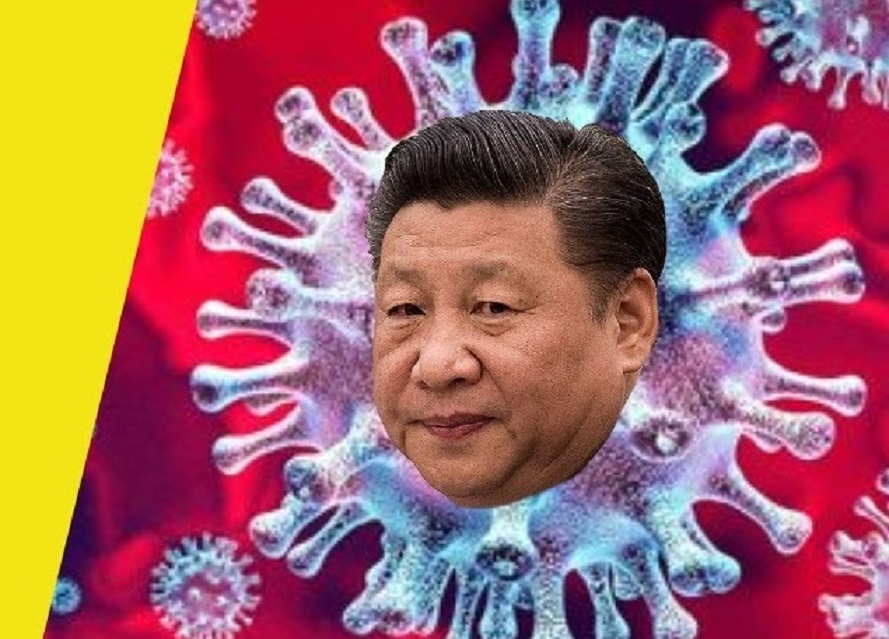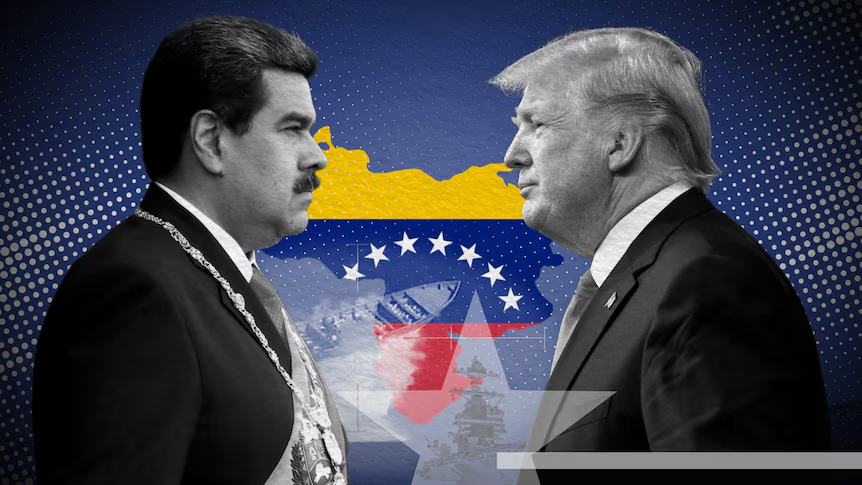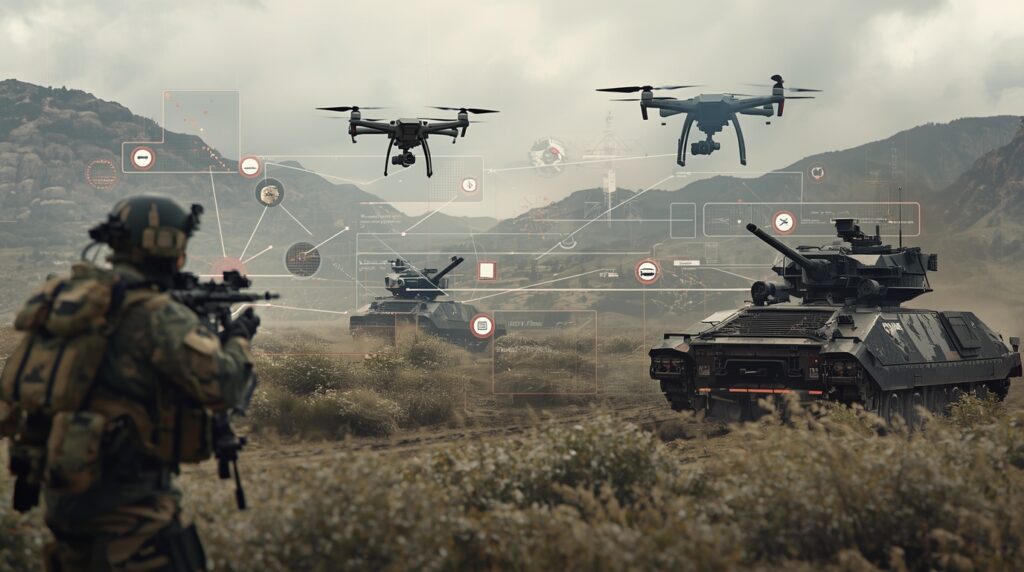Mr Muraleedharan Nair, Distinguished Senior Fellow, DRaS, argues that the Chinese President Xi Jinping’s error of judgement led to the delay in alerting the world about COVID 19 outbreak.
A ‘full-scale’ investigation by the World Health Organisation (WHO) into the origin of SARS-Cov-2, the novel coronavirus that caused the Covid-19 pandemic and other related matters are expected to get underway in the near future. Besides ascertaining the origin of SARS-Cov-2, hopefully, it will also go into other important questions like China’s ‘role’ with regard to the emergence of the coronavirus in Wuhan city. While China’s success in the timely containment of the Covid-19 infection inside the country is noteworthy, its failure to prevent the virus spread beyond its borders should also come under the world body’s scanner. However, how deep will the WHO team go into these aspects is anybody’s guess.
However, an equally, or even more serious issue that needs to be probed is, whether China has been remiss, or delinquent in alerting the world of the impending disaster if the country’s leadership was aware of some clear signs of an emerging epidemic that later turned pandemic? It is not yet known whether or not the WHO will look into other points like the Chinese negligence, as alleged in some quarters, was a willful act, or has the delay occurred due to the ineptness of its administrative or political leadership at some level that failed to understand the seriousness of the issue. Anyone who as suffered directly or indirectly due the pandemic has a right to get answers to these questions.
Questions galore
Even amidst the anti-China sentiments that prevailed in the context of Covid-19, except for a few, a vast majority in the global scientific community who have studied the genome sequencing of the virus, including in the United States, believe that there are no signs of any genetic manipulation in the SARS-CoV-2 genome. They generally agree that the virus’s genome is 96 per cent similar to a coronavirus found in bats, and therefore, it does not appear manmade. In other words, a lion’s share of the scientists who studied the matter believes that SARS-CoV-2 is a ‘human capable’ variant of the coronavirus that would have jumped to humans, most probably, from bats.
Doubts were also expressed whether the Chinese were experimenting with coronavirus at the Wuhan Institute of Virology (WIV) or elsewhere in the country? Did the virus jump to humans from such a Chinese facility? It is known that the Chinese were experimenting on the coronavirus especially after a surveillance system was put in place in 2004-2005 following the 2003 SARS outbreak that infected at least 8,096 people, and killed 774 in 29 countries, mostly in Asia. In fact, after the SARS outbreak, the US and China had taken the lead in an international effort to cooperate more closely on public health issues with the Chinese National Influenza Centre (CNIC) and the US Centre for Disease Control and Prevention (CDC) in setting up a Collaborative Program on Emerging and Re-Emerging Infectious Diseases. It may be pertinent to mention here that China had become the first country to mass-produce an H1N1 vaccine.
That being the case, is it possible that a mutated, human capable variant of the coronavirus jumped to one or more human beings from such a facility? Is there any truth in the widely reported story that an infected intern at Wuhan Institute of Virology (WIV) had passed on the virus to her boyfriend accidentally? That the WIV is located not far away from the Huanan Wholesale Seafood Market, that remains at the centre of controversy as the breeding ground of the first cluster of Covid-19 cases, did add ‘some credence’ to this theory. Even as China rejected the suggestion that the intern and her boyfriend could be the index cases of the current outbreak, the Chinese have maintained that they have not been able to identify the index case so far.
Significantly, the possibility of the WHO team getting any evidence from the seafood market unless planted later by vested interests, is remote, as reports suggest, its premises have since been ‘cleaned’ and sanitised. Thirdly, even if the speculation in some quarters that the Chinese People’s Liberation Army may have been experimenting with coronavirus as part of a secret biological warfare research project in one of the government facilities is true, and whether or not it has any connection to the Covid-19 outbreak will remain a secret until a potential whistle-blower surface in the not so near future. Fourthly, the Chinese side will make available to the WHO team only those preserved pathological samples and reports and other related material that fits into its narrative of the virus outbreak, absolving it of any culpability. In other words, the Chinese side would have covered its track so very well by now that the WHO investigation would largely be a mere ‘guided tour’ with little free access to any man or material that might incriminate the Chinese side.
Chinese narrative
From the very beginning, China’s efforts have appeared to be directed at ‘proving’ that the SARS-Cov-2 virus did not originate in Wuhan, even as it might have emerged in that city. The Chinese were encouraged by studies by scientific teams, particularly from the western world that toed the above Chinese line, at least partially. Such papers were selectively fed to the media, particularly those outside China, in haste. One such study by a team from Cambridge University suggested that SARS-Cov-2 virus might have originated as early as in September 2019 ‘in a place south of Wuhan’ [maybe, even Guangdong in Southern China], and it would have mutated and remained in bats or other animals, or even humans, before it went jumping from humans to humans. An even more recent study by Harvard Medical School (HMS), “based on satellite images of hospital travel patterns and search engine data” claimed that “the coronavirus might have been spreading in China as early as August last year”.
The Chinese side, therefore, will insist on widening the scope of the WHO investigation by alleging that the virus could have been carried into China by a host animal or even a human carrier from some other country in Asia, South America or West Africa where coronavirus inhibiting bats could be found. The Chinese side can also be expected to ask the WHO team to probe reports that similar infections were allegedly noticed in countries like the US, France, and Kazakhstan, some of which, again allegedly, earlier than in Wuhan.
The WHO had gone out of the way in praising the Chinese side for the latter’s “transparency,” a “new standard-setting” response to the outbreak and its “very impressive” act of quickly sharing virus spread-related information. As the international investigation progresses, the Chinese side will most likely dump the blame on the delay in alerting the world on WHO’s doorstep quoting the organisation’s earlier statements that it was informed of the developments on a real-time basis. Unable to retract its premature praise of the Chinese side made as early as in February 2020, the WHO will struggle to stand up to the mighty Chinese heft.
At the same time, evidence can be gleaned from Chinese media reports and studies by Chinese scientists and medical professionals published in reputed journals that at least six weeks before the SARS-Cov-19 novel coronavirus outbreak was officially confirmed by the Chinese authorities, doctors in Wuhan, the epicentre of the Covid-19 outbreak, had come across ‘influenza-like symptoms of a new type of virus infection that was not responding to laid down protocols of treatment’. However, senior officials asked the concerned medical professionals not to report the matter outside the hospital. The city officials even permitted holding a record-breaking gala potluck-type Chinese New Year (CNY) banquet that was attended by thousands of families in Wuhan city even weeks after the virus outbreak was brought to their attention. Further, until the city of Wuhan was locked down on 23 January 2020, tens of thousands of residents, including migrant and expatriate workers, up to 5 million according to some estimates, were allowed to leave Hubei Province, of which Wuhan is the capital. Millions of Chinese people, including migrant workers returning to their hometowns or visiting domestic and overseas tourist destinations during the one to two weeks-long (or even more, in some cases) New Year (CNY) holiday season is a massive annual occurrence. Naturally, there are no estimates as to exactly how many among them might have carried the coronavirus to their destinations.
Wuhan administration officials now claim that even as they were aware of the existence of an unknown virus spreading weeks before the world was told about it, they had no clear idea of the severity of the problem in hand, primarily the human-to-human transmission capability of the virus. At the same time, were they afraid that tens of thousands of those who were booked to visit Wuhan and other places in Hubei from other parts of China on New Year (CNY) social visits and holidaymaking would cancel their plans if the news of a possible ‘epidemic outbreak’ got out, hitting the local economy in the short and medium-term? Did the Wuhan officials worry that the cost would be heavy if the virus actually did not spread, though it eventually did? Or, was the local leadership anxious to hold the important annual sessions of the Hubei Provincial Committee of the Chinese People’s Political Consultative Conference [a political advisory body] and Hubei Provincial People’s Congress [the provincial legislature] that were scheduled to be held in Wuhan from 11 to 15 January and 12 to 17 January, respectively?
Further, even if some city officials understood the seriousness of the development, they could not, under the Chinese system, warn the local population about it without clearance from the Provincial authorities, and the latter wouldn’t act without the clearance from the Central authorities. China’s political system that mandates obedience to the ruling party and its leadership does not allow junior or mid-level officials and party cadres to question the judgement of the higher leadership even during emergencies or reveal to anyone even emergent public health-related developments without proper authorisation. This was witnessed during the 2003 SARS outbreak as well. Sadly, in a country where ‘performance’ and ‘guanxi’ [connections/networking], and not necessarily hard work and seniority, are the main criteria for career progression, the truth often becomes the victim. In such scenarios, Chinese officials have always preferred to hide away ‘inconvenient information’ without a second thought.
Clinching evidence
Significantly, the proof is now available that the Chinese leadership in Beijing, in fact, President Xi Jinping himself, was aware of the virus outbreak in Wuhan either in the first week of January 2020 or even before that. One can draw this conclusion from President Xi’s own statement in early February, carried, among others, by Quishi (Volume 2020/04), the official organ of the CPC Central Committee. It says, Xi Jinping in his capacity as the General Secretary of the CPC had, on January 7, “given general instructions on dealing with the outbreak at a Politburo Standing Committee (PBSC) meeting”. [PBSC, as we know, is the highest decision-making authority in China.] At the same time, it is intriguing that no indications suggesting that these instructions that came from the all-powerful CPC General Secretary, that too at a meeting of the supreme decision-making body in China was followed up vigorously at any level till the end of the third week of January. Further, the details of these general instructions could not be traced so far to any mainland government news portals that could have enabled the outside world to understand the nature of these directives.
Curiously, after directing his colleagues to fight the virus spread on 7 January, as claimed by Xi Jinping himself, he went about his pre-scheduled programmes. He went on a foreign trip, to Myanmar from 17 to 18 January, followed by an inspection tour of Yunnan from 19 to 21 January. He also attended high-level Party and government meetings and even an award ceremony. It is clear that he had not even planned to cancel any major Chinese New Year events, including the customary New Year-eve, calls on former senior leaders. Further, if Xi Jinping had indeed instructed his colleagues on 7 January to fight the virus spread, why none of his speeches and statements in China or abroad, including in his subsequent Party and government meetings till January 20, the details which were published in the media, has any mention about the seriousness and urgency in fighting the virus outbreak?
Secondly, there are no reports about the problem being discussed in any high-level government or Party meetings, including at the PB/PBSC, subsequent to 7 January and before the end of the third week of the month? In fact, the other senior leaders of the Party and government, including Premier Li Keqiang also went ahead with their routine schedules till 20 January. [Premier is similar to a prime minister and he is the head of the State Council, China’s cabinet.] It appears that the top leadership became serious about the crisis situation that had evolved in Hubei only when two of China’s leading epidemiologists returned from Wuhan and briefed the head the National Health Commission on 20 January. Further, it was only after Vice Premier Sun Chunlan, who had gone to inspect the situation in Wuhan came back with shocking revelations on the ground realities on January 21 that the Chinese leadership decided to press the button.
Even as the outbreak of the virus infection in Hubei was evident by then, Xi Jinping did not cut short his Yunnan visit (19 to 21 January) and return to Beijing to take direct control of the situation. He actually waited till 21 January, reportedly in the evening, to return to Beijing. Coincidentally, it was also on 21 January that the United States reported its first case of Covid-19, the first case outside Asia. [The first case outside China was reported earlier on 13 January in Bangkok, Thailand. Both the patients had arrived from Wuhan only days ago.] And finally, the Chinese government announced the ‘lockdown’ of Wuhan in the evening of 22 January, to be effective from the wee hours of 23 January, and expanded to other cities in Hubei and other provinces subsequently.
Finally, let’s revisit a question that was asked worldwide at the time that, even after returning from Yunnan on 21 January, why did Xi Jinping stay away from the frontlines of the Covid-19 fight, leaving the leadership role in the matter to Premier Li Keqiang during the period 26 January to 9 February, a critical period by all counts in the whole Covid-19 saga in China? That it led to the whole world speculating about the possible reasons did not change anything. His being away till 21 January could be blamed tomorrow on the ‘ineptitude’ of the Wuhan/Hubei leadership for ‘not briefing the Central leadership appropriately’. But staying away from the helm even after reality dawned on him needs to be explained. If he was taken ill during the period, why clarification was not given even after several months? Some observers even suspected that Xi Jinping wanted to transfer all the blame to Li Keqiang and other lower-level officials in case the fight against the coronavirus failed. Of course, the situation was salvaged quickly enough mainly because of the “indomitable capacity of the Party and the government to mobilise the resources” at their will.
Overall, Xi Jinping would be remembered primarily for his poor judgement in times to come, especially when the Xi Jinping era is studied both inside and outside China. In addition to that, lack of tact and failure to break away from the stranglehold on Chinese Communist Party by hawks in the People’s Liberation Army that suffers from a chronic Middle Kingdom syndrome would also be considered as a major factor that led to his poor handling of bilateral relations with the US, Hong Kong, Taiwan, the South China Sea littoral states, Japan, Australia, India, among others. However, in the case of the coronavirus outbreak, as an observer famously said, “the perceived mistakes made by Xi Jinping are errors of omission—steps he should have taken but did not—rather than errors of commission” he committed in the case of the other matters mentioned above.
Title Image Courtsey : https://www.youtube.com/
Disclaimer: The views and opinions expressed by the author do not necessarily reflect the views of the Government of India and Defence Research and Studies.






